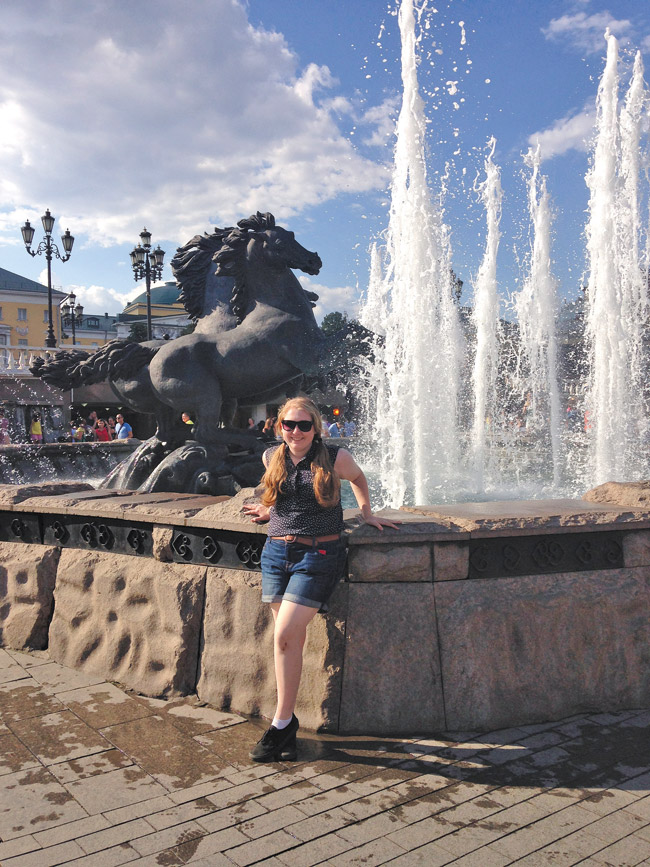Wahiawa Teen’s Russian Adventure Was An Educational Thrill

Zoe Sprott poses in front of a fountain near Red Square in Moscow. The teen traveled to Russia to study the language. Photo from the Sprott family.
Zoe Sprott would be the first to tell you that there aren’t a lot of fundamental differences between Russia and Hawaii. And she should know — the Sacred Hearts Academy senior spent seven weeks this summer living in Kirov, Russia, as part of the National
Security Language Initiative for Youth exchange program.
“I’ve always had an interest in Russian culture, though I haven’t really been able to cultivate it,” mused Sprott, a Wahiawa resident.
A friend tipped her off about the program, which is funded by the U.S. Department of State to help students attain fluency in less-studied languages through immersion.
Sprott’s trip was divided into two parts: three weeks in a dormitory, living with Russian and American teenagers, and the rest of the time with a host family. Guided by the “very welcoming” natives, Sprott got to experience the ups and downs of daily life in Russia.
She found that the people in Russia and Hawaii are more similar than the thousands of miles between them would suggest.
“People in Hawaii are very welcoming in general. We’re a tourist state, so we’re used to that sort of vibe,” she said. “(Russians) don’t smile when they walk, and they might not show their hospitality to strangers very outwardly, but when it comes to hosting, they’re very similar.”
There are a few differences, of course.
The Hawaii palate may need some time to get used to Russian cuisine. Sprott ate pelmeni (meat-filled dumplings), borscht (a beet and tomato soup) and blini (a crepe-pancake hybrid topped with jam, butter, sour cream or other ingredients). She said Russian food is a little “bland” compared to the spicier, more Asian-influenced fare she likes in Hawaii.
She also discovered that Russian sewer systems are not equipped to handle toilet paper, which must be disposed of in a little trash can next to the toilet.
And while she did get to tour Russian cultural sites, learning the language came first. Sprott spent four to five hours every day in class, and she practiced constantly with everyone around her.
She admitted she was shocked by her progress, which culminated in a final presentation on their last day in Kirov.
“We all realized at that point how much we had learned. It didn’t feel like we were learning much — it was all so quick,” she confessed. “But when we gave our presentation and asked questions, it all came out so naturally.”
The whole experience convinced Sprott, who wants to continue studying Russian in some capacity in college, that people aren’t really all that different, toilet paper and bland food aside.
“We tend to draw cultural boundaries — if you’re Korean, then you have this kind of family; if you’re Russian, you have this kind of family — but going to Russia and seeing how similar everyone is, it … makes the world seem a bit smaller.”





